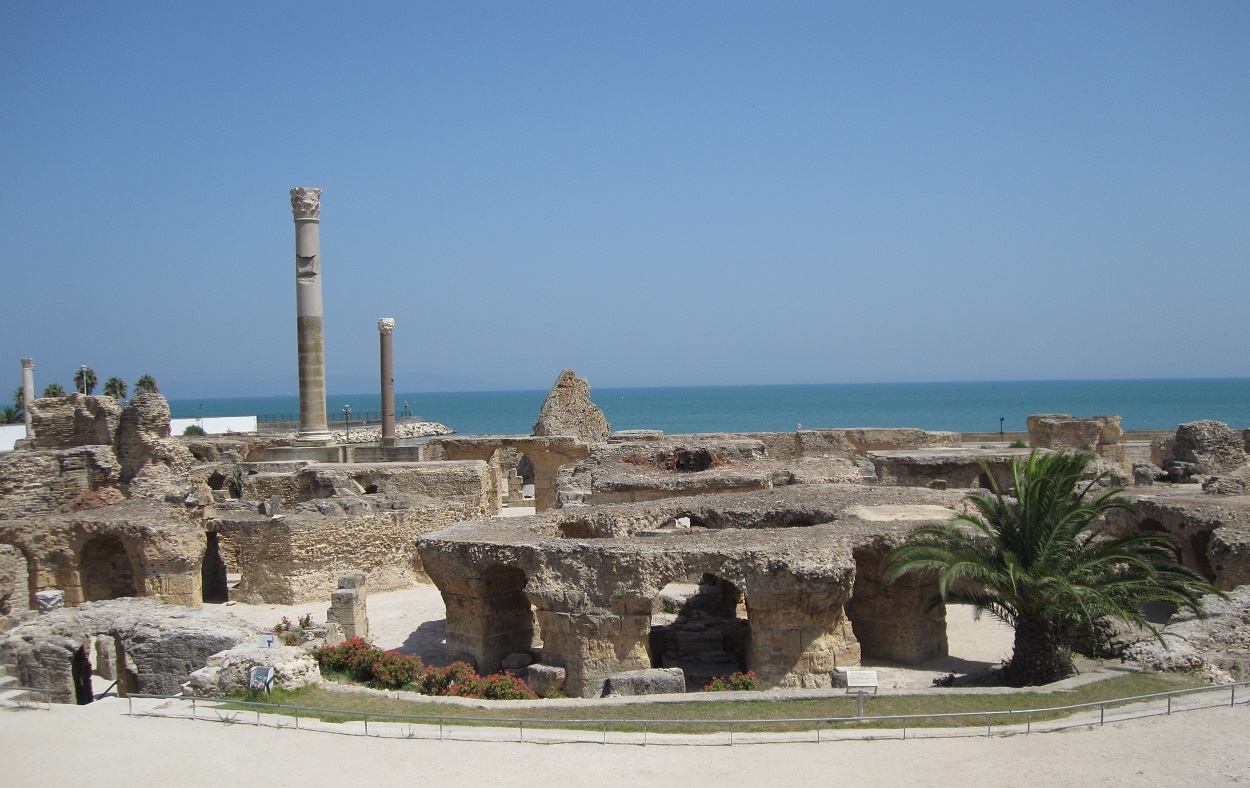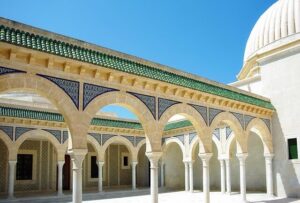- Introduction
- Climate and Temperatures in Spring in Tunisia
- When to Go to Tunisia in Spring
- Itineraries and Travel Tips for Spring in Tunisia
- FAQs
- Conclusions
Welcome to a fascinating journey to discover Spring in Tunisia, a magical season that transforms the landscape into a burst of colors, fragrances, and emotions.
Climate and Temperatures in Spring in Tunisia
The spring season in Tunisia offers sunny days and pleasantly mild temperatures. During this period, the weather conditions are ideal for exploring both cities and rural areas, thanks to a climate that favors outdoor activities. The temperatures in Tunisia in spring remain balanced, providing just the right warmth without extremes that could disturb tourism.
Furthermore, the transition from the coolness of winter to the liveliness of spring allows you to admire nature in full rebirth. The weather conditions are perfect for hiking in the desert landscapes and along the coasts, offering scenes that enchant photographers and travelers. Here are some advantages:
- Temperate and sunny climate
- Average temperatures ideal for outdoor activities
- Natural scenery of rare beauty
Climate data show that spring in Tunisia is a transitional period where there is a gradual increase in solar energy, contributing to the rebirth of vegetation. Thanks to these conditions, tourism during this season enjoys an excellent reputation, attracting visitors from all over the world.
When to Go to Tunisia in Spring: Tips and Recommendations
Determining when to go to Tunisia in spring is essential for an unforgettable stay. During this time of year, the climate is favorable for various activities, allowing you to explore historic cities, relax on the beaches, and embark on adventures in the desert. Spring offers ideal conditions for combining cultural tourism and adventure, without the summer heat.
Travelers can take advantage of the balanced temperatures and abundant sunshine to visit archaeological sites and local markets. Practical advice includes bringing light clothing along with a few layers for cooler evenings, so you can fully enjoy the experience. Here are some suggestions:
- Book in advance to secure the best rates
- Consult local tourist guides for customized itineraries
- Check the weather forecast to prepare for climatic variations
Moreover, choosing the right period to depart allows you to avoid the crowds typical of peak seasons and to enjoy the tranquility that characterizes the territory at this time. The ideal time frame ranges from late March to early May, when the temperature is perfect for exploring, relaxing, and enjoying unique experiences in every corner of Tunisia. Adopting these measures helps to ensure an optimal and organized stay, making every minute of your trip count.
Itineraries and Travel Tips for Spring in Tunisia
The itineraries proposed for Spring in Tunisia are designed to offer top-notch cultural, natural, and gastronomic experiences. The selected destinations range from imperial cities to desert landscapes, ensuring a journey rich in discoveries and unforgettable moments. A flexible approach allows you to customize the tour according to your passions and needs, integrating stops at historical and scenic points of interest.
Among the main attractions, the following are highlighted:
- The ruins of Carthage and ancient cities
- Traditional markets and culinary specialties
- The oases and nature trails in the desert
A recommended itinerary includes departing from the capital followed by stops in small historical centers, where each stop offers the opportunity to immerse yourself in the local culture and taste typical dishes. For travelers seeking adventure, guided excursions with well-structured itineraries and constant support are available. Integrating these suggestions helps you plan a balanced and varied journey, where tradition meets modernity and comfort.
Additional useful tips relate to budgeting and choosing accommodations, which can make a significant difference in the overall experience. Spring in Tunisia, thanks to its favorable climate and numerous activities, turns out to be the ideal time to explore the country in depth and in style.
FAQs
What is the best period to visit Tunisia in spring?
The ideal period is from late March to early May, when the climate is mild and temperatures are perfect for outdoor activities. This window allows you to fully enjoy every tourist attraction.
Are the temperatures in Tunisia during spring suitable for hiking?
Absolutely. The spring temperatures offer optimal conditions for hiking and walking, especially in desert and coastal areas. It is recommended to bring clothing suitable for potential temperature fluctuations.
How can I organize an itinerary for a spring vacation in Tunisia?
It is useful to plan the main stops in advance, integrating cultural visits and outdoor activities. Consulting local guides and experts can make the experience even richer and more personalized.
Conclusions
In conclusion, spring in Tunisia represents a unique season that offers a perfect mix of culture, nature, and relaxation. The favorable climatic conditions, mild temperatures, and abundance of activities make this period the ideal choice for a vacation that combines tradition and modernity. Whether you are passionate about hiking, history, or gastronomy, visiting Tunisia in spring guarantees authentic and emotionally rich experiences. Prepare your trip carefully, rely on local guides, and organize each stop attentively to fully enjoy this extraordinary season.






